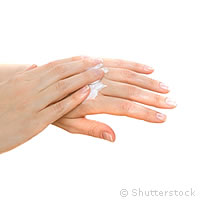Stakeholders call for more eczema and dermatitis research
Doctors, patient groups and researchers have called for urgent action to ease the suffering of people with the skin complaints eczema and contact dermatitis. More research is desperately needed to develop better treatments for these common conditions. Atopic eczema is thought to affect 20% of children and up to 10% of adults, while contact dermatitis affects around 15% of the population. Despite their prevalence, relatively little research is being carried out into these conditions and no new treatments have been developed. According to Susanna Palkonen of the European Federation of Allergy and Airways Diseases Patients' Associations (EFA), the fact that these diseases are not fatal means they are often not taken seriously. Nevertheless, they have a serious impact on sufferers' quality of life. They also cost the economy money; while there is very little data on the global cost, the economic burden of eczema and skin allergy in Germany alone is estimated at €7 billion a year. The main symptom of eczema is the constant itching, which distracts patients during the day and keeps them awake at night. Many patients have to go to considerable lengths to avoid the factors which trigger a flare-up of the condition. Some are severely restricted in their choice of clothes, as certain materials trigger flare-ups, and others have to be careful regarding their choice of skincare products, cleaning products and even occupation, as some jobs may force them to touch products or materials which aggravate the condition. The redness brought on by the condition has a negative impact on patients' self-esteem, and a significant part of patients' free time is given over to skincare and the application of creams designed to alleviate the condition. Emollient creams are extremely effective at restoring the skin's barrier, but as these do not contain a recognised active ingredient, few medical schemes reimburse sufferers for the costs of emollients. As a result, sufferers are forced to pay for these creams themselves, a situation which Johannes Ring of the Technical University of Munich describes as 'scandalous'. 'More research as well as better therapy are mandatory in order to improve the lives of millions of European citizens,' he stated. An exciting new avenue of treatment is the establishment of courses designed to train patients to manage their condition more effectively. One such course has been set up at Ghent University Hospital in Belgium. Patients with a range of skin diseases attend the course twice a week for 12 weeks. During the sessions, they learn stress reduction techniques such as sports, meditation and yoga; this is important as stress often triggers flare-ups of skin conditions. Other sessions cover nutrition, sleep, smoking and even philosophy. There is also a session devoted to skincare techniques. A preliminary analysis of the first three editions of the course reveals that patients' quality of life improved significantly following the course. The next step is to see if these improvements persist in the long term. The course organiser is now planning a further study to investigate in detail the impact of the course on each patient's skin condition, and ultimately whether the course is cost-effective. The theory is that patients who are empowered to manage their condition better will take fewer trips to the doctor and use less medicine, thereby saving the health system money. The hope is that one day such courses will be available to patients right across Europe.



